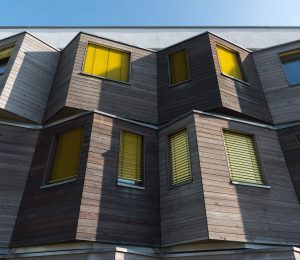Blinds not only look great in your home, but they’re also a fantastic way of improving the energy efficiency of your building. Even with double and triple glazing, windows are unfortunately areas in your home where heat energy is lost, and it is estimated 30% of heat is lost through windows in UK homes. We insulate our lofts and our walls to keep heat in – so why don’t we insulate our windows?
As energy prices continue to rise, it’s never been more important to keep the heat in your home. By installing energy saving blinds, you can look to curb your wasted energy, maintain a comfortable temperature, and help keep your bills low this winter.
Benefits of Blinds in Winter
Blinds are a great option if you’re looking to reduce your bills this winter and boost the energy efficiency of your home. If you’re thinking about installing blinds but are unsure about the overall benefits to you and your house, we’ve supplied a detailed breakdown of the advantages below:
Blinds Help to Keep Your Bills Low
By installing blinds into your home, you can help to monitor the temperature of your home with ease and keep it at a comfortable level. Blinds prevent heat from being lost through windows which will over time add to the cost of your bills, especially on cold winter days. With efficient blinds, you can save up to 40% of that energy, meaning you won’t have to have the heating on as much or as high.
Your Blinds Will Pay for Themselves
You might think that blinds are a cost that you can save on, but did you know that blinds will start to save you money over time? It is estimated that in just 5 years time your blinds will have paid for themselves due to the savings you make. As energy prices continue to rise, blinds can be a great investment for the future.
Blinds Are Kinder to the Planet
By installing blinds you are not only benefiting your own pocket, but you’re also helping to reduce your carbon footprint and make your home more environmentally friendly. The U-value of an object refers to how much heat is lost by an object – the lower the better. Generally, a double-glazed window will have a U-value of 2.9, but with the simple addition of a blind this figure could drop to 2.1. That’s an impressive saving of nearly 30%! If every house in the UK were to do this simple change it would have a staggering impact on our country’s environmental impact.
What Blinds are the Most Energy Efficient?
There are many different types of blind available to install in your home – but which one is the most energy efficient? This ultimately depends on the material of your blind and whether or not it has gaps in the design that allows energy to escape.
Blinds such as blackout blinds and honeycomb-style blinds are generally the best at keeping heat inside your home. Blackout blinds are made from thicker materials that make it harder for heat to escape, whereas honeycomb blinds use a layer of trapped air between the materials to create extra insulation.
Shutter blinds are slightly less effective at making your home energy efficient, as the air can escape through the gaps in the lats. Even still, they can be used effectively if a thick, well insulated material is used and they are closed at the correct times. To boost the energy efficiency of your blinds during winter, make sure to open them fully in the morning to allow solar energy to enter your building, and then close them as soon as the sun goes down to keep the heat in.
If you require any more information on which blinds are best for making your home more energy efficient, speak to a member of our team. We are available to reach on 0116 366 0652, or visit our contact page to submit an enquiry.


